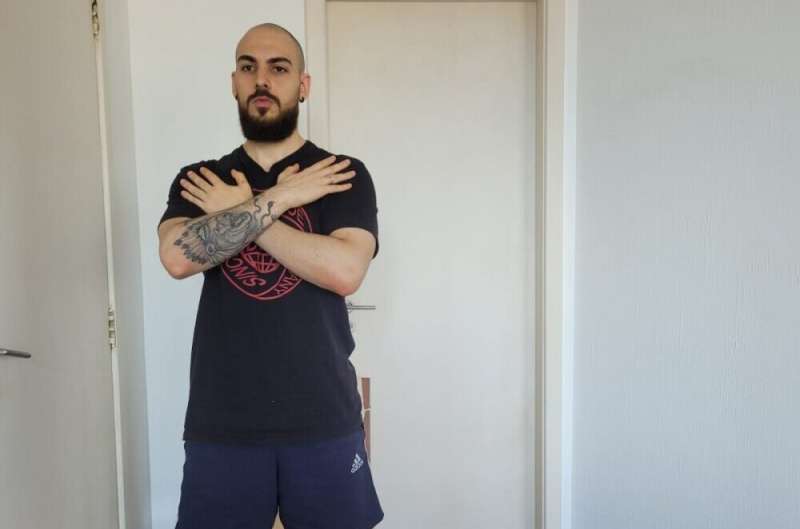This article has been reviewed according to Science X's editorial process and policies. Editors have highlighted the following attributes while ensuring the content's credibility:
fact-checked
peer-reviewed publication
trusted source
proofread
Study proves efficacy of remote physical training in rehabilitation of severe COVID patients

Researchers at the University of São Paulo (USP) in Brazil have created an exercise training program that survivors of severe COVID-19 can safely perform at home as rehabilitation therapy for persistent symptoms after they are discharged from hospital.
Findings of a study recently reported in the British Journal of Sports Medicine show that exercise can improve the quality of life for these patients, benefitting their health and functionality while reducing the number of persistent symptoms, such as muscle pain and weakness.
Long COVID (also known as post-COVID-19 syndrome) affects more than 40% of people who contract the disease. The symptoms, defined as persistent if they last more than 12 weeks, include low cardiorespiratory fitness, impaired functional capacity, reduced muscle mass, anxiety and depression. Scientific evidence suggests the syndrome is most frequent among survivors of severe COVID-19.
Taking into consideration the therapeutic potential of physical activity for people with cardiovascular, metabolic, respiratory and mental disorders, researchers at the university's medical school (FM-USP) designed a remote exercise training program to mitigate these symptoms in 50 patients over the age of 45 who had been treated between three and six months previously for severe COVID-19 in the intensive care unit of Hospital das Clínicas, the hospital complex run by FM-USP.
The 16-week home-based training program consisted mainly of functional capacity exercises in three weekly sessions of 60-80 minutes. One session was supervised remotely by an instructor via video call. The other two were overseen by means of systematized follow-up reports. The complexity, duration and intensity of the exercises were adjusted for each patient in accordance with their limitations on the Post-COVID Functional Scale (PCFS).
All participants underwent cardiorespiratory and functional assessments in the university's laboratory. They also received leaflets with instructions on how to perform the exercises, recommended precautions, and suggestions for use of chairs or buckets of water for resistance training, among others.
At the end, health-related quality of life was evaluated using the Medical Outcomes Study 36-Item Short-Form Health Survey (SF 36), a standard scientific questionnaire covering eight domains, with scores and scales for each one (physical functioning, role limitations due to physical problems, bodily pain, general health perceptions, vitality, social functioning, role limitations due to emotional problems, and mental health).
The results showed that the program significantly improved all the parameters analyzed. "We also observed an improvement in cardiorespiratory parameters, such as oxygen consumption and heart rate recovery, as well as a decrease in body fat and the number of persistent post-COVID symptoms, especially fatigue, muscle weakness, aches and pains," said Hamilton Roschel, a professor at FM-USP and principal investigator for the study.
"In sum, the program is safe, which is particularly important in remote interventions. Moreover, in this study, it achieved its objectives."
Health and economic benefits
The researchers believe the model can be applied throughout Brazil, with public health and economic benefits that include savings for the social security system, since functionality guarantees autonomy and helps survivors of the disease return to work.
Adaptations and additional tests will be necessary. One of the difficulties to be surmounted, for example, is the low level of digital literacy and lack of internet access in large swathes of the country, hindering supervision and follow-up of remote training sessions.
"We know exercise has significant therapeutic potential for treatment of the consequences of infection by SARS-CoV-2," Roschel said. "Public primary care centers in Brazil unfortunately don't have enough physical education professionals and physiotherapists to provide post-COVID treatment, so we need alternative models for delivering programs that target these patients."
More information: Igor Longobardi et al, Effects of a 16-week home-based exercise training programme on health-related quality of life, functional capacity, and persistent symptoms in survivors of severe/critical COVID-19: a randomised controlled trial, British Journal of Sports Medicine (2023). DOI: 10.1136/bjsports-2022-106681

















